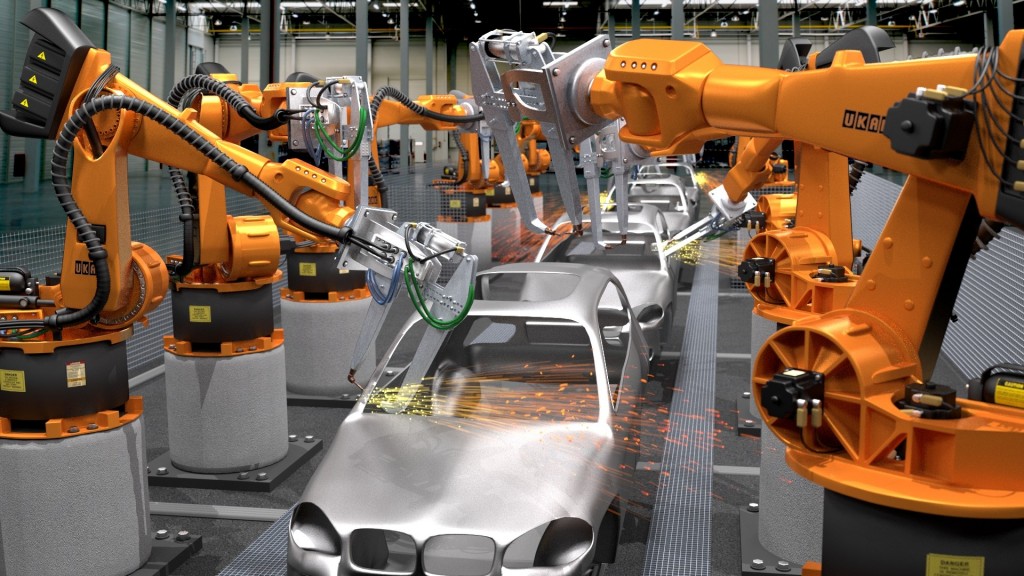

The global silicon shortage continues to impact the car industry after two big names in the sector confirmed ongoing problems.
According to Reuters, General Motors on Wednesday confirmed it would again extend production cuts at three North American plants, and added a fourth to the list of factories hit. It comes after GM last month extended its production cuts at three North American factories.
Meanwhile rival car group Stellantis which was formed by the merger of Fiat Chrysler and Groupe PSA (brands include Alfa Romeo, Chrysler, Citroën, Dodge, Fiat, Jeep, Opel, Peugeot and Vauxhall), also admitted the pain caused by the chip shortage could linger far into the year.
The extended production cuts at General Motors could shave up to $2 billion from this year’s earnings, it is being reported.
That said, GM CFO Paul Jacobson was quoted by Reuters as saying chip supplies should return to normal rates by the second half of the year and he was confident the profit hit would not worsen.
“GM continues to leverage every available semiconductor to build and ship our most popular and in-demand products, including full-size trucks and SUVs,” GM spokesman David Barnas said. “We contemplated this downtime when we discussed our outlook for 2021.”
GM said it would extend downtime at plants in Fairfax, Kansas, and Ingersoll, Ontario, to at least mid-April, and in San Luis Potosi, Mexico, through the end of March.
In addition, it will idle its Gravatai plant in Sao Paulo, Brazil, in April and May.
Stellantis meanwhile on Wednesday did not give an estimate for the financial hit it expects this year from the shortage and said the issue could last into the second half of 2021.
Stellantis CEO Carlos Tavares said the automaker was working hard to find alternative chip supplies, but he was “not so sure” the issue would be resolved by the second half of 2021.
The US government has become increasingly alarmed at the global chip shortages that has forced car makers and other manufacturers to limit production.
US President Joe Biden signed an executive order on 24 February to tackle a number of pressing shortages for four critical products, such as semiconductor chips, electric vehicle batteries and rare earth minerals.
President Biden also said last week he would seek $37 billion in funding to supercharge chip manufacturing in the United States.
German car maker VW last month publicly blamed poor planning by chip makers as the principle reason for most car brands around the world have had to to reduce factory production.
Audi (part of the Volkswagen group) also warned it was having to slow production because of the chip shortage, forcing it to make 10,000 fewer cars in the first quarter of the year and putting more than 10,000 workers on furlough.
Daimler (which makes Mercedes), Fiat, Honda, Ford, Nissan, Subaru and Toyota all reportedly have had to suspend production for days or weeks at a time.
That said, Toyota and Hyundai are less impacted by the chip shortage as they both managed to stockpile chips ahead of the shortage.
Mazda also warned it would cut its global output by 7,000 vehicles in February and March.
Ford meanwhile warned this month the chip shortage could lead to a 10 to 20 percent loss in first-quarter production, which could impact profits by as much as $2.5 billion.
Samsung also recently warned that a global shortage in semiconductors for cars could have a knock-on effect on the memory chips used in smartphones.
British retailer Marks & Spencer apologises after it struggles to recover from cyberattack this week,…
Apple to pivot manufacturing of iPhones for US away from China and to India, after…
Boom time. Amid ongoing cost cutting and potential break-up threat, Alphabet profits surge as AI…
AI pioneer OpenAI is interested if Google is forced to sell of its Chrome browser…
Several units within Google notified remote workers jobs will be in jeopardy if they don't…
Leading holders of Trump meme coin receive invitation to private gala dinner with US President,…